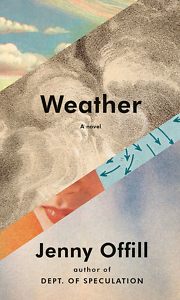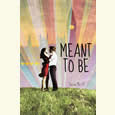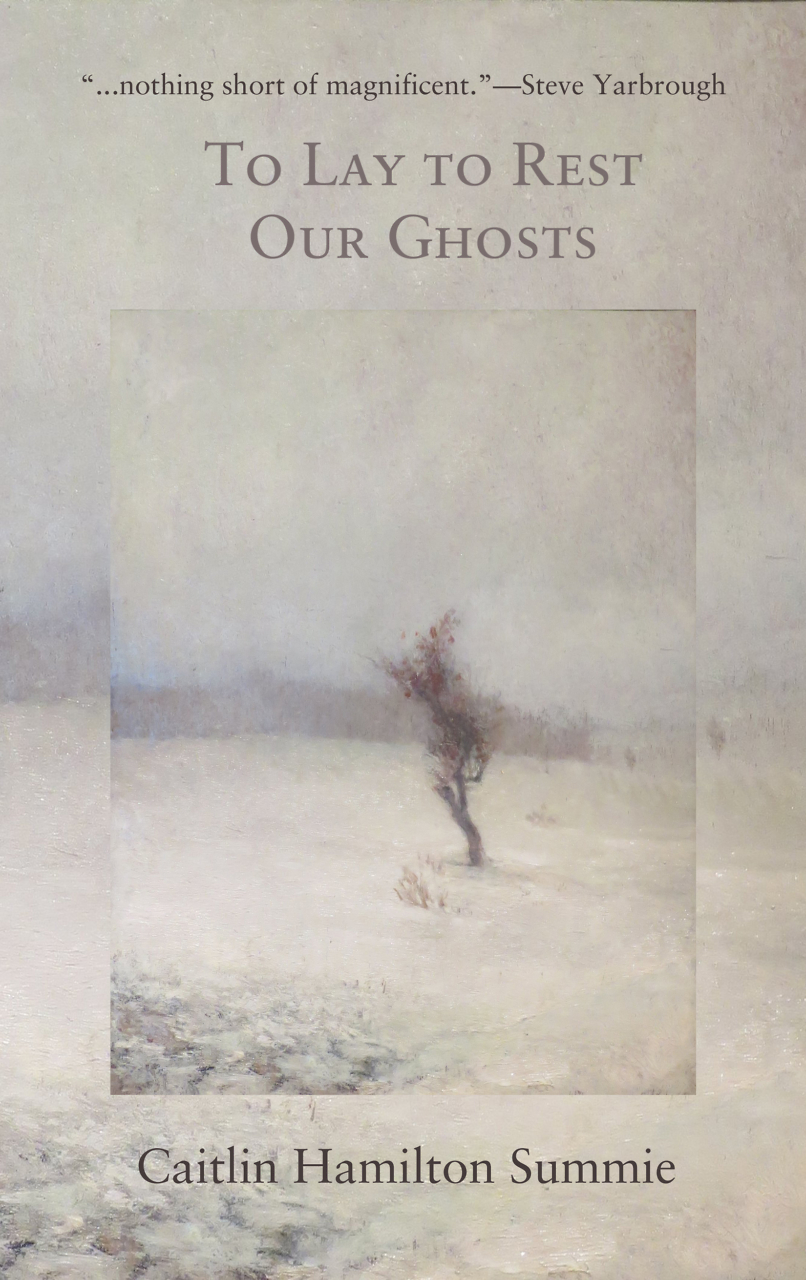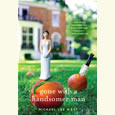Survival Kit
Jenny Offill’s Weather is a guidebook for finding hope in the dark
It’s rare to stumble upon a book that answers the specific needs of our current moment. Tornadoes ripped through Middle Tennessee on March 3, leaving homes, businesses, and lives in ruin. Just a week later, the World Health Organization declared COVID-19, the novel coronavirus, a global pandemic. These two shocking crises have left many Tennesseans in a stupor, and despair and disillusionment seem to come naturally. Weather, the new novel by Jenny Offill, is a book about maintaining optimism in the face of such chaos.
 But Weather is not an apocalyptic novel. Rather, it deals with existential dread about very real threats — the climate crisis, the unraveling of our democracy, the suppression of civil liberties. The narrator, a young woman named Lizzie, lives in Brooklyn, New York, with her husband and child. She’s sharp and observant, works in a university library, and has recently started helping out her mentor, a woman named Sylvia. Sylvia hosts a podcast about the climate crisis, and she’s asked Lizzie to answer letters from listeners. The questions those letters contain make Lizzie’s reality take on a different hue.
But Weather is not an apocalyptic novel. Rather, it deals with existential dread about very real threats — the climate crisis, the unraveling of our democracy, the suppression of civil liberties. The narrator, a young woman named Lizzie, lives in Brooklyn, New York, with her husband and child. She’s sharp and observant, works in a university library, and has recently started helping out her mentor, a woman named Sylvia. Sylvia hosts a podcast about the climate crisis, and she’s asked Lizzie to answer letters from listeners. The questions those letters contain make Lizzie’s reality take on a different hue.
“How can we save the bees?” writes one listener. Others want logistical support: “What are the best ways to prepare my children for the coming chaos?” There are more philosophical queries: “How do you maintain optimism?” Lizzie replies in a variety of ways, including allegorical stories, an occasional survivalist tip she’s picked up on the internet, and jokes. At first, her attitude is wryly humorous, acknowledging the fanaticism of preppers — people who are prepared for any crisis, be it natural disasters or civil unrest. Preppers acquire medical supplies, nonperishable food, and other necessities, but they also acquire knowledge: how to make a candle out of a can of tuna fish, how to catch fish using only a t-shirt and spit, etc. But as Lizzie attends Sylvia’s podcast tapings and lectures, she gets drawn into the impulse to prep, imagining her “doomstead” — a doomsday homestead — with equal parts humor and dread.
At the crux of the book is an emotional landscape that is rich and verdant but surrounded by a desolate, burning world. Offill’s title, Weather, fits perfectly. Weather is the day-to-day goings on in the sky, in the air around us. It’s connected to but different from climate, which is the weather in an area prevailing over a long period of time. Climate change deniers often point to the day-to-day weather as evidence that the crisis is a hoax, as when Oklahoma Sen. James Inhofe brought a snowball into the Senate chamber in 2015. Lizzie’s consciousness orbits around the threat of the climate crisis, but in that orbit is the weather of life: the people she loves, the daily interactions that she mines for meaning, the safety she finds in routine.
 In its first half, the novel feels meandering. Scenes are short and unconventional. It takes sharp attention to infer where Lizzie is, to whom she is speaking, and how the scene connects to one earlier in the book. Often, the narrator’s thoughts don’t seem to connect. But this style rewards patience: If you’re content to ponder Lizzie’s philosophical queries and make the most of her observations, you’ll be rewarded with a joyful sense of slowing down. Weather asks us observe our own thought processes in our daily lives.
In its first half, the novel feels meandering. Scenes are short and unconventional. It takes sharp attention to infer where Lizzie is, to whom she is speaking, and how the scene connects to one earlier in the book. Often, the narrator’s thoughts don’t seem to connect. But this style rewards patience: If you’re content to ponder Lizzie’s philosophical queries and make the most of her observations, you’ll be rewarded with a joyful sense of slowing down. Weather asks us observe our own thought processes in our daily lives.
The pacing picks up in the second half, when Lizzie’s brother Henry — an addict in recovery to whom she is unconditionally devoted — becomes a father, and his fears shake apart his already-fragile reality.
Politics enter the novel, too. Lizzie never mentions Trump by name, but he’s present all the same. She says about the time after the election: “There is a period after every disaster in which people wander around trying to figure out if it is truly a disaster. Disaster psychologists use the term ‘milling’ to describe most people’s default actions when they find themselves in a frightening new situation.”
The novel seems an answer to Rebecca Solnit’s 2004 book of nonfiction Hope in the Dark. Solnit wrote her book as a response to the Bush administration’s War on Terror, and she presents an argument for nurturing hope, even when it seems like our leaders are turning back the clock on social and political progress. Solnit makes this case by providing a historical record of people who have enacted change in their communities and on the world’s stage, even against great odds. Weather takes the broad historical strokes of Hope and shrinks them to the size of a woman’s life in her neighborhood.
“How do you maintain optimism?” Lizzie has a garden to tend, despite the soon-to-be burning world. It’s the people she loves.

Erica Ciccarone is the culture editor for the Nashville Scene. She holds an M.F.A. from The New School and is writing a novel.


